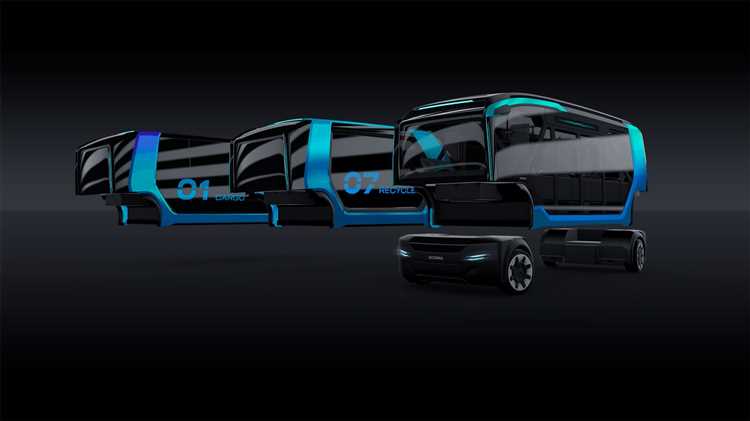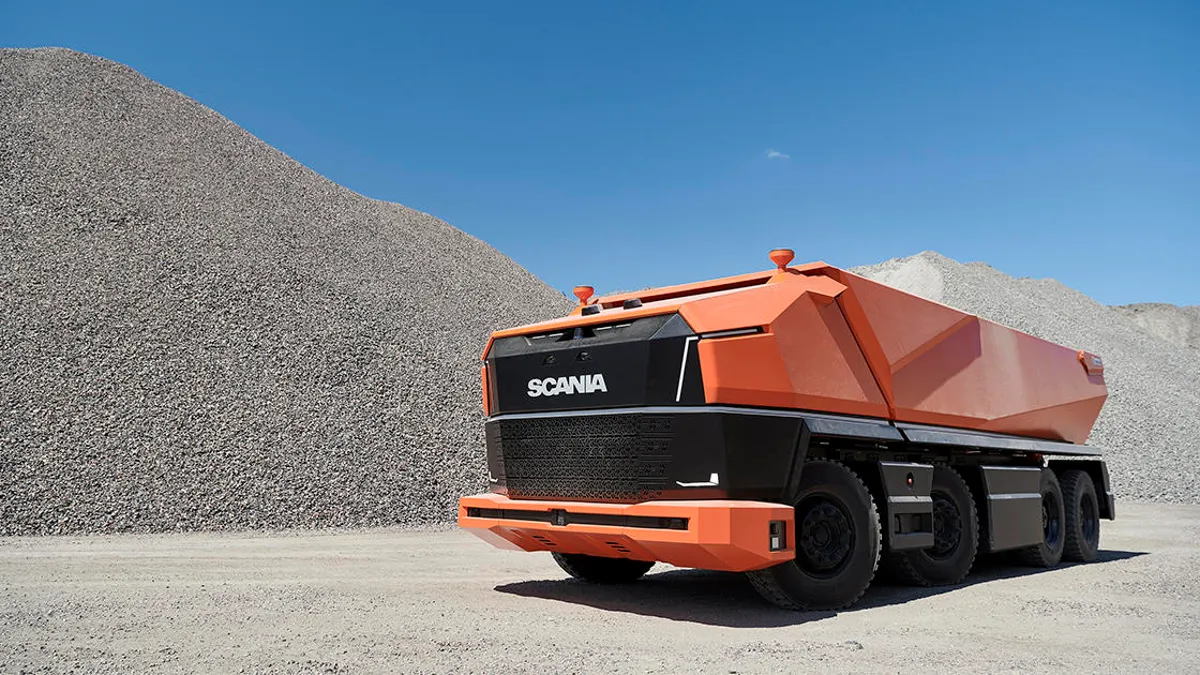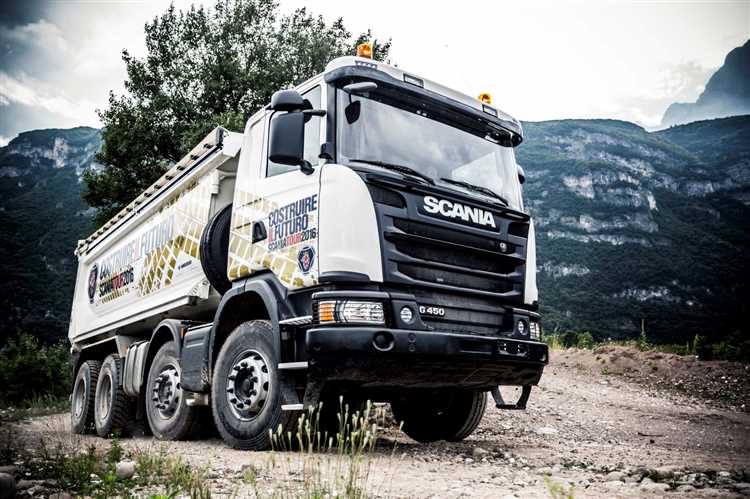
In recent years, the development of autonomous vehicles has gained significant momentum, with various companies exploring the possibilities of self-driving cars and trucks. Scania, a leading manufacturer of heavy-duty trucks, has been at the forefront of this technological revolution, investing heavily in research and development to advance autonomous trucking.
Scania’s commitment to innovation and cutting-edge technology has allowed them to make significant strides in the field of autonomous trucking. Through the use of advanced sensors, cameras, and artificial intelligence, Scania has been able to develop autonomous trucks that can navigate complex road conditions and safely transport goods to their destination.
One of the key advantages of autonomous trucking is the potential to increase road safety. With self-driving trucks, there is a reduced risk of human error, which is a leading cause of accidents on the road. Scania’s autonomous trucks are equipped with state-of-the-art safety features, such as emergency braking systems and advanced collision detection, to ensure the highest level of safety for both the truck driver and other road users.
In addition to improving road safety, autonomous trucking also offers significant economic benefits. Self-driving trucks have the potential to reduce fuel consumption and optimize delivery routes, resulting in lower operating costs for trucking companies. Scania’s autonomous trucks are designed to be highly efficient and environmentally friendly, with advanced fuel management systems and predictive maintenance capabilities.
Looking into the future, Scania envisions a world where autonomous trucks are a common sight on our roads. With ongoing research and development, Scania aims to further improve the capabilities of their autonomous trucks, making them even more reliable and efficient. The company is also actively collaborating with other industry leaders and regulatory bodies to address the challenges and ensure the safe integration of autonomous trucks into our transportation system.
Scania’s role in advancing autonomous trucking is not just about developing the technology itself, but also about shaping the future of transportation. By harnessing the power of automation and artificial intelligence, Scania is revolutionizing the trucking industry and paving the way for a more sustainable and efficient future.
Driving Innovation in Autonomous Trucking
The advancement of autonomous trucking technology is driving innovation in the transportation industry. Scania, a renowned manufacturer of heavy-duty trucks, is playing a crucial role in this revolution. By developing cutting-edge autonomous driving systems, Scania is at the forefront of transforming the way goods are transported.
One of the key areas where Scania is driving innovation is in the development of advanced sensors and perception systems. These technologies allow autonomous trucks to perceive and interpret their surroundings, enabling them to navigate complex road conditions with ease. Scania’s sensor technology combines radar, lidar, and cameras to provide a comprehensive understanding of the truck’s environment.
In addition to sensor technology, Scania is also focused on developing robust artificial intelligence algorithms that can analyze and process the data collected by the sensors. These algorithms enable autonomous trucks to make real-time decisions and adapt to changing road conditions. By continuously improving these algorithms, Scania is enhancing the safety and efficiency of autonomous trucking.
Scania is not only focusing on the technological aspects of autonomous trucking but also on the infrastructure required to support it. The company is actively collaborating with government agencies and other stakeholders to develop a comprehensive framework for autonomous trucking operations. This includes establishing regulations, standards, and protocols to ensure the safe and efficient integration of autonomous trucks into existing transportation systems.
Furthermore, Scania is committed to sustainability and reducing the environmental impact of trucking. Autonomous trucks have the potential to optimize routes, reduce fuel consumption, and minimize emissions. By promoting the adoption of autonomous trucking technology, Scania is contributing to a greener and more sustainable future for the transportation industry.
In conclusion, Scania is driving innovation in autonomous trucking through its advanced sensor technology, artificial intelligence algorithms, infrastructure development efforts, and commitment to sustainability. With its expertise and dedication, Scania is shaping the future of transportation and revolutionizing the way goods are moved around the world.
Pushing Boundaries with Technology
Scania is at the forefront of pushing boundaries with technology in the field of autonomous trucking. With their advanced research and development efforts, they are constantly exploring new possibilities and pushing the limits of what is possible.
One of the key ways Scania is pushing boundaries is through the use of artificial intelligence (AI) and machine learning. By harnessing the power of AI, Scania is able to develop sophisticated algorithms that allow their autonomous trucks to learn and adapt to different driving conditions and scenarios.
Another area where Scania is pushing boundaries is in the development of sensor technology. Their trucks are equipped with a wide range of sensors, including radar, lidar, and cameras, that allow them to perceive their surroundings with high accuracy and make informed decisions in real-time.
Scania is also pushing boundaries with their data analytics capabilities. They collect and analyze vast amounts of data from their autonomous trucks, which helps them identify patterns, optimize performance, and improve the overall efficiency and safety of their vehicles.
To further advance autonomous trucking, Scania is actively collaborating with other industry leaders and research institutions. By sharing knowledge and expertise, they are able to accelerate the development and adoption of autonomous technology, pushing the boundaries even further.
In conclusion, Scania is a driving force in advancing autonomous trucking by pushing boundaries with technology. Through their use of AI, sensor technology, data analytics, and collaboration, they are constantly pushing the limits of what is possible and shaping the future of transportation.
Collaboration for Success

In the rapidly evolving field of autonomous trucking, collaboration is key to achieving success. Scania recognizes the importance of working together with various stakeholders, including technology companies, transport operators, and regulatory bodies, to accelerate the development and implementation of autonomous driving technologies.
By collaborating with technology companies, Scania can leverage their expertise in areas such as artificial intelligence, machine learning, and sensor technology. This collaboration allows Scania to incorporate the latest advancements in these fields into their autonomous trucking systems, ensuring that their vehicles are equipped with the most advanced and reliable technology.
Furthermore, partnering with transport operators is crucial for Scania to understand the specific needs and challenges of the industry. By working closely with transport operators, Scania can develop autonomous trucking solutions that are tailored to the requirements of different sectors, such as long-haul transportation or urban delivery. This collaboration ensures that Scania’s autonomous trucks are not only technologically advanced but also optimized for practical use in real-world scenarios.
Additionally, collaboration with regulatory bodies is essential to ensure that autonomous trucking technologies comply with safety and legal standards. By collaborating with regulatory bodies, Scania can contribute to the development of regulations and standards that facilitate the safe and responsible deployment of autonomous trucks on public roads. This collaboration helps build trust and acceptance of autonomous trucking among authorities, industry stakeholders, and the general public.
In summary, collaboration plays a vital role in Scania’s efforts to advance autonomous trucking. By working together with technology companies, transport operators, and regulatory bodies, Scania can accelerate the development and implementation of autonomous driving technologies, ensure the practicality and reliability of their solutions, and promote the safe and responsible deployment of autonomous trucks.
Revolutionizing the Industry
Scania has been at the forefront of revolutionizing the trucking industry with its advancements in autonomous trucking technology. Through its cutting-edge research and development, Scania has made significant strides in improving the efficiency, safety, and sustainability of trucking operations.
One of the key ways Scania is revolutionizing the industry is through the development of autonomous driving systems. These systems allow trucks to navigate on their own, without the need for constant human intervention. This not only reduces the risk of accidents caused by human error but also improves fuel efficiency by optimizing driving patterns and reducing idle time.
Another area where Scania is making a significant impact is in the area of connectivity. By equipping trucks with advanced sensors and communication technology, Scania is able to collect and analyze real-time data on various aspects of trucking operations. This data can then be used to optimize routes, predict maintenance needs, and improve overall fleet management.
Scania’s commitment to sustainability is also evident in its autonomous trucking technology. By optimizing driving patterns and reducing fuel consumption, Scania’s autonomous trucks contribute to a significant reduction in greenhouse gas emissions. This not only benefits the environment but also helps trucking companies reduce their carbon footprint and comply with increasingly stringent emissions regulations.
In conclusion, Scania’s advancements in autonomous trucking technology are revolutionizing the industry by improving efficiency, safety, and sustainability. Through the development of autonomous driving systems, connectivity, and a commitment to sustainability, Scania is paving the way for a future where trucking operations are more efficient, safer, and environmentally friendly.
The Future of Autonomous Trucking
The advancement of autonomous trucking technology is set to revolutionize the transportation industry in the coming years. Scania, as a leading manufacturer of trucks, is at the forefront of this revolution, developing innovative solutions that will shape the future of autonomous trucking.
One of the key benefits of autonomous trucking is improved safety on the roads. With advanced sensors and AI technology, autonomous trucks can detect and respond to potential hazards more quickly and efficiently than human drivers. This will significantly reduce the risk of accidents and make transportation safer for everyone.
Another advantage of autonomous trucking is increased efficiency. Self-driving trucks can operate without the need for breaks or rest, allowing for continuous operation and faster delivery times. This will not only benefit businesses by reducing transportation costs but also improve the overall supply chain, ensuring that goods reach their destinations in a timely manner.
In addition to safety and efficiency, autonomous trucking also has a positive environmental impact. Self-driving trucks can be programmed to optimize fuel consumption and reduce emissions, leading to a greener and more sustainable transportation system. This is crucial in the fight against climate change and will contribute to a cleaner and healthier environment for future generations.
However, there are still challenges to overcome before autonomous trucking becomes a widespread reality. The technology needs to be further developed and tested to ensure its reliability and effectiveness in different driving conditions. Additionally, regulations and infrastructure need to be adapted to accommodate and support autonomous vehicles on the roads.
In conclusion, the future of autonomous trucking holds great promise for the transportation industry. With the ongoing advancements in technology and the commitment of companies like Scania, we can expect safer, more efficient, and environmentally friendly transportation systems in the years to come.
Transforming Supply Chains

As autonomous trucking becomes a reality, it has the potential to transform supply chains in a variety of ways. One of the key benefits is the ability to optimize logistics and improve efficiency. With autonomous trucks, companies can streamline their operations by reducing the time and resources required for transportation. This can lead to faster delivery times, lower costs, and increased customer satisfaction.
Another way autonomous trucking can transform supply chains is through increased safety. By removing the human element from the driving equation, the risk of accidents caused by human error is greatly reduced. Autonomous trucks are equipped with advanced sensors and AI technologies that allow them to navigate and react to their surroundings, making them much less prone to accidents. This not only improves safety for truck drivers, but also reduces the risk of product damage and delays.
Additionally, autonomous trucking can enable more flexible and efficient operations. With the ability to operate 24/7, autonomous trucks can make deliveries at any time, including during off-peak hours. This can help optimize routes and reduce congestion on the roads, leading to faster and more reliable transportation. Furthermore, autonomous trucks can be seamlessly integrated into existing supply chain systems, allowing for real-time tracking and monitoring of goods, which can improve inventory management and reduce the risk of stockouts.
Overall, the advent of autonomous trucking has the potential to revolutionize supply chains. By optimizing logistics, enhancing safety, and enabling more efficient operations, autonomous trucks can drive significant improvements in productivity, cost-effectiveness, and customer satisfaction. As companies continue to invest in and develop this technology, we can expect to see a major shift in the way goods are transported and supply chains are managed in the future.